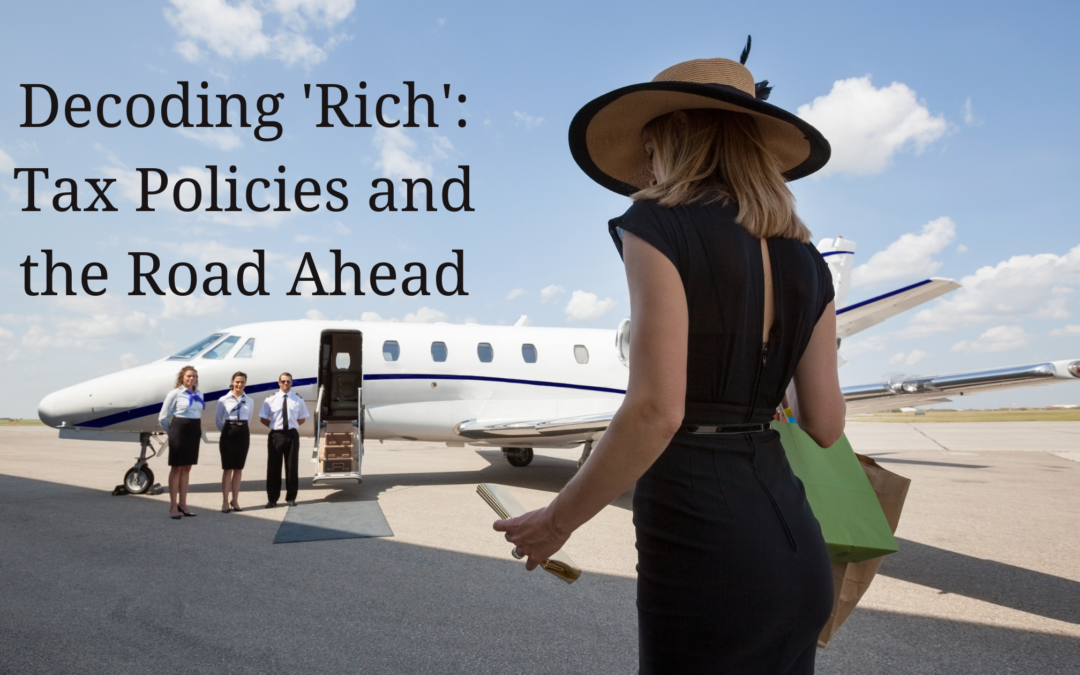Have you ever wondered who qualifies as “rich” when it comes to taxes and planning? This year’s presidential election is offering up two very different ideas on the matter.
The IRS annually adjusts income tax brackets to keep up with inflation. Currently, individuals earning over $609,350 a year or couples making $731,200 fall into the top tax bracket of 37%. President Biden thinks folks earning $400,000 or more should pay even higher taxes. Conversely, former President Trump wants to simplify the tax code, starting the top bracket at $168,600.
But here’s the kicker: neither plan is likely to become law as is. However, they give us a glimpse into potential future policies, especially with parts of the Tax Cuts and Jobs Act set to expire soon.
Now, defining who’s “rich” isn’t as straightforward as you might think. It’s not just about income; it’s about a whole range of factors, like wealth, education, and type of work. And it’s not just a tax issue; it’s a broader debate about who can afford to pay more to support our society.
Biden’s budget proposal aims to reduce the deficit by taxing the wealthiest households more, but critics say it could hurt the economy. Meanwhile, Trump’s plan focuses on tax cuts and a consumption-based approach to spur economic growth.
The real question is: Do you feel rich? It’s not just about the numbers; it’s about what you can afford and what’s fair. And as the election approaches, advisors and their clients will have to navigate these murky waters to figure out where they stand in the eyes of the taxman.
Whether you’re a millionaire or just making ends meet, the debate over who’s “rich” impacts us all. Stay informed, stay engaged, and remember, it’s not just about the money—it’s about what kind of society we want to build together.
How the definitions of rich and wealthy affect taxes | Accounting Today
